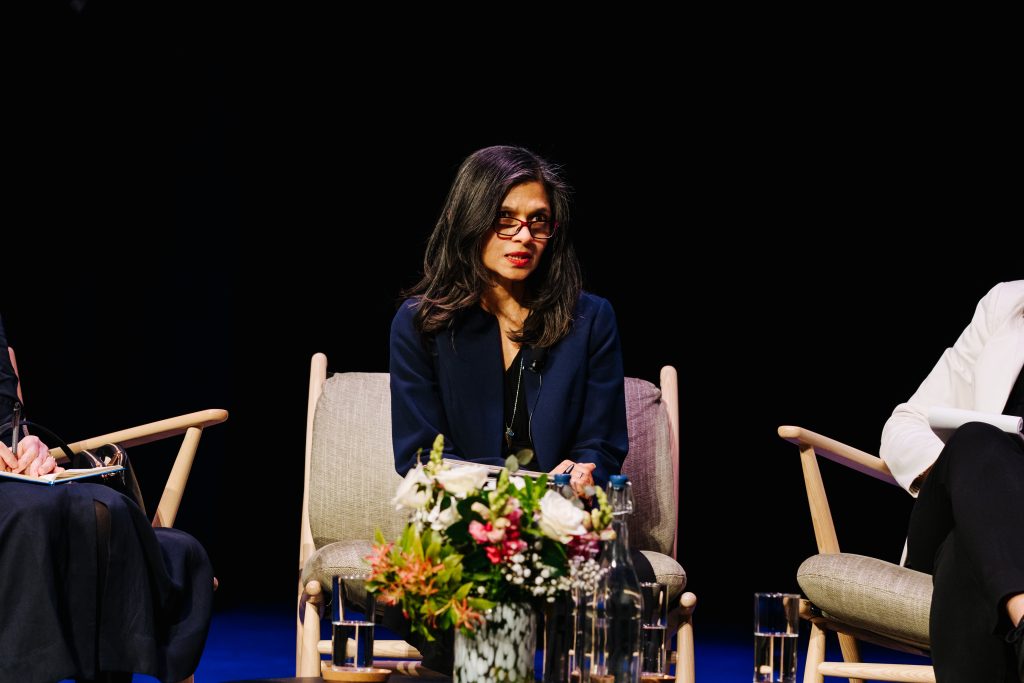Following the success and popularity of our conference panel session, ‘Diversity and Inclusion in Higher Education Professional Services: Attracting and Retaining the People we Need‘, we caught up with panelists Christina Hughes and Dr Arun Verma to get their reflections on some of the questions, about recruiting with EDI considerations, our delegates brought to the session but didn’t get the chance to answer:
Headhunters are used to recruit to senior roles, following a set brief established by the university leadership team. Does this enable EDI or push it back?
Dr Arun Verma, Head of Inclusion, University of London

Equality and inclusion work should facilitate senior level recruitment to ensure the pool of candidates, long lists and short lists are diverse from characteristics, identities and through to thought, without reducing the quality, competency and merit of prospective candidates. However, senior leaders should question or even pause recruitment if there are issues of inequality or a lack of diversity. There is a cultural issue with senior leadership appointments, in that nepotism is rife across the sector at this level, and rigorous interviewing with students and staff from across the institution should be the norm when it comes to senior leadership and governing boards.
What have you got to say to HE professionals who don’t have a university degree themselves? (Colleagues in that position have reported feeling shamed and obliged to hide it – it feels like a taboo)
Christina Hughes, Founder and CEO of Women-Space Leadership
This is such an important thing to highlight. Shame, for any reason, is invidious and painful. It is rooted in how we see ourselves in relation to others or how we think others perceive us. The pervasive feeling is that there is something wrong with you – even when you know there isn’t. Shame, and its corollary embarrassment, causes us to withdraw or avoid situations or conversations that trigger these feelings because of how demeaned we feel by them. It leads to social isolation or a sense of being an imposter. If you are in this situation, there are a couple of things you can do.

First, practice self-compassion. As Kristin Neff, the absolute go-to on this subject – https://self-compassion.org/what-is-self-compassion/ – tells us, compassion towards ourselves is really no different than having compassion for others. If your friend or a member of your family is in a tough situation you would feel compassionate toward them. Turn this back to yourself – be kind. Give yourself a hug – yes honestly hug yourself. It releases all kinds of feel good hormones such as oxytocin. Also check out Kristin Neff’s website. It is full of resources.
My second response is to practice the art of being out and proud. I have no doubt that your experience, capabilities, skills and qualities more than surpass what is required for your role. Otherwise you would not have been successful through the selection process. I have worked with many people who have the most incredible experience in sectors and roles beyond the university. Many just don’t have a piece of paper that says they spent three years studying a particular subject. If you are confident in yourself – hence the self-compassion work – others will take your lead. Basically, you are asking your colleagues to take you for what you are – a fully rounded human being with skills and experience they would love to have.
What practical steps would you recommend that we could take to change our staff recruitment practices and embed inclusion by design?

Firstly, mapping out your recruitment journey from marketing through to onboarding and interrogate where there are strengths and gaps in the policies, processes and practices. Implement and compensate a staff challenge panel, comprising of the least represented, seen and heard group in your system, who can interrogate and positively disrupt your approach and help co-create a more inclusive pathway. Develop standardised interview structures and assessments that have been created with a diverse group of staff to minimise errors and poor-quality recruitment practices and decisions. And finally, always look at implementing continuous improvement cycles with recruitment each year to enhance and make rapid changes when required.
Do we need to stop talking about people as ‘resources’ to humanise our organisations?
Absolutely we do. Synonyms for resources include: assets; budget; capital; collateral; funds; income; property; accumulation; money. None of us want to think of ourselves in these kinds of ways. It positions us in an exchange relationship based purely on economics and finance.
In some organisations “talent” is the preferred term. This speaks to people’s flair; aptitudes; expertise; and strengths. Much more human and far more leading us to focus on recognising and developing our strengths and capabilities.
So perhaps this is a moment for some lobbying and renaming…










Thank you to everyone who attended this panel session and submitted questions to the panellists, to keep up to date with the latest publications from AHEP, be sure to subscribe via the form on our homepage.
The latest from AHEP:
